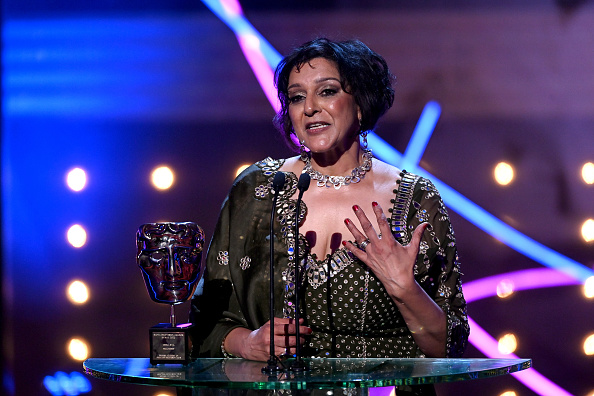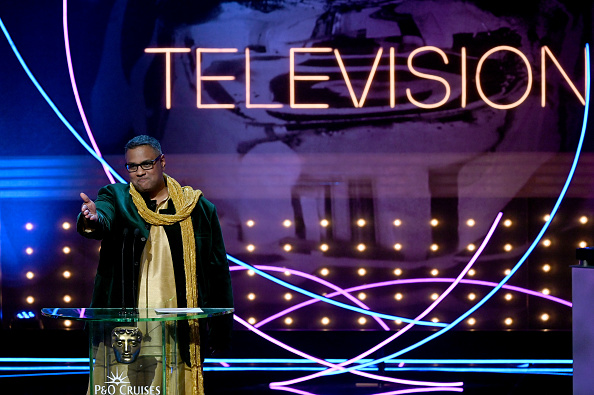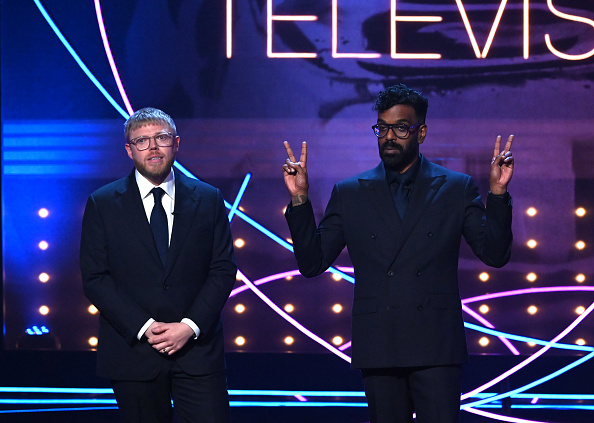
ACTOR Meera Syal remarked that the TV industry needed greater diversity, “not just in front of the camera but in the writers’ rooms, in makeup vans, and around tables where deals are done”, as she was honoured with the Lifetime Achievement Award.
Syal, who is best known for her role in Goodness Gracious Me and for being one of the first British Asian actors to routinely appear on British television, expressed gratitude to Bafta for “seeing us” when she was selected for the fellowship, the highest honour in the television industry.
She dedicated her win “to all my fellow travellers, all the ones who’ve been made to feel because of their race, sex, or class that their stories don’t matter. They do because the untold stories are the ones that change us, and sometimes can change the world.”
Krishnendu Majumdar, the outgoing BAFTA Chair, used his final speech after three years in post to push the industry on its ongoing work for representation both on and off-screen.
He said: “I’m so proud of the journey we’ve been on, and the seismic changes BAFTA has made over the last three years. That work continues because progression on making this industry more representative, inclusive, and equitable is a collective responsibility. It’s on all of us.

“Awards are a mirror to the industry. They offer a snapshot of a moment in time. They reward excellence and celebrate success, and they also tell us a lot about the current picture of the UK television sector.
“So, let’s redouble our efforts. Let’s look again at how we are supporting people from all backgrounds – not just to enter the industry, but to stay in the industry and thrive in sustainable careers”.
He described that Syal as a “national treasure”, whose role in Goodness Gracious Me – shown on BBC Two from 1998 to 2001 – had “changed the game”.
“You have paved the way for so many others – seeing is believing. I wouldn’t be standing here if it wasn’t for you,” he added.
Throughout his tenure, Majumdar has prioritised improving BAFTA’s own efforts in the area of diversity.
However, from more than 40 per cent the previous two years, the percentage of TV award nominees from ethnic origins fell to 24 per cent this year.
In a letter to members earlier this month, Majumdar stated that “setting diversity quotas for voting is not the answer” for the BAFTA award ceremonies.
As of this month, BAFTA has a 42:58 female-to-male membership split, with 16 per cent of members belonging to underrepresented ethnic groups, 7 per cent having disabilities, and 12 per cent self-identifying as LGBTQ+.
Next month, Majumdar’s term as chair comes to an end, and Deputy Chair Sara Putt will take over.

For his historical films that have looked at black British history as well as the effects of slavery and colonialism, Prof. David Olusoga also received a BAFTA Special Award.
Romesh Ranganathan, the co-host, commented on the pressure placed on comedians to exhibit balance by stating that doing so would necessitate referring to the Bafta audience as both “shark-eyed narcissists” and British TV’s luminaries.